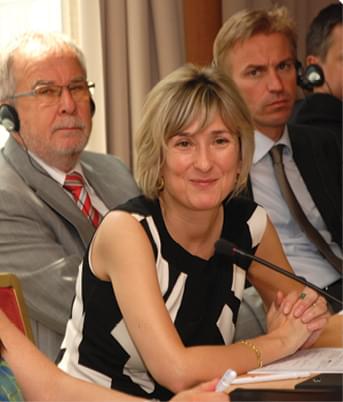Magazine: Brands – no pain, no gain
The Hungarian Brand Association has mixed feelings about 2011: the organisation itself had a rather successful year but the business and regulatory environment turned much more rigid, creating much worse conditions for the brand industry.
Vice-president Lídia Marosfi and secretary general Zoltán Fekete told our magazine that in this crisis-ridden period it would be especially important to have professional interest representing organisations buzzing. When things are going well they have less to do, but when times are bad their ‘diplomatic’ activity is crucial. Well, in 2011 there was an abundance of problems: declining domestic consumption and consumers’ changing brand preferences constituted a shock in itself, but erratic economic policy and drastic changes in tax regulation made things worse. Probably the worst thing last year was the lack of adequate dialogue between the government and the profession. With certain ministries the association had a good working relationship but other authorities were less accessible or only treated professional dialogue as a formality. Luckily, the association has traditionally had good relationship with the Competition Authority, the Consumer Protection Authority and the Central Agricultural Office, which often managed to offset the negative effects of the political and legislative rigidity. In 2011 only one new company applied for membership (Maresi Foodbroker) – back in 2010 there were three applications (Detki Biscuit, Hell Energy, Mary-Ker). One member quit the association, probably due to financial reasons. It is definitely positive feedback that the ‘legal successors’ of firms that went out of business joined Brand Association straight away: instead of Bacardi, Cerbona and Kaiser now DunaPro, Naponta and Debreceni Group are members. At the moment the association has almost 60 members with 13,000 employees and a turnover of HUF 1,300 billion. If we look behind the numbers, the biggest lesson learned in 2011 was that member companies expect quickly accessible and reliable information, plus more direct and efficient interest representation in the unpredictable economic environment. This is the reason why the association decided last October to focus only on its three basic tasks in 2012. Accordingly, they recently set up three committees: the legal and financial committee prepares the association’s regulatory lobbying activity, with the help of external partner Deloitte; the commercial and industrial committee aims at establishing a dialogue with the state’s executive authorities; the consumer and communications committee deals with the association’s PR tasks and one of its major goals is to achieve a better position for the industry and for association members in the relations with the government. One of the association’s specific FMCG projects, ‘Brands for Life’ is adapted from the Brussels-seated European Brands Association (www.life.aim.be) and its goal is to demonstrate how dedicated the sector is to sustainability.
Related news
Related news
How to spend Valentine’s Day around here
🎧 Hallgasd a cikket: Lejátszás Szünet Folytatás Leállítás Nyelv: Auto…
Read more >






